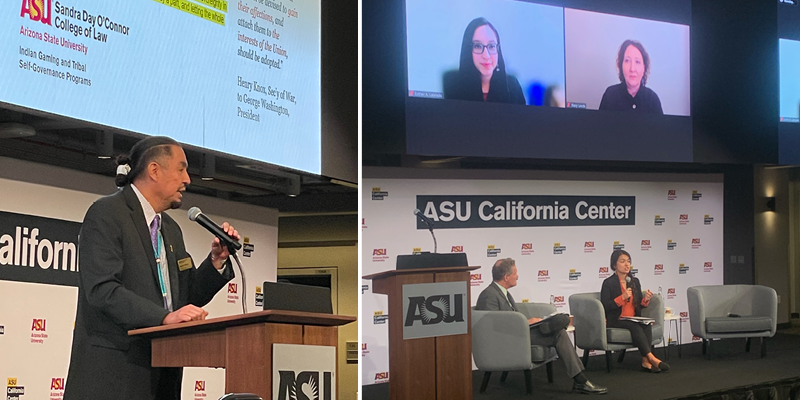EDUCATION AND QUALIFICATIONS:
• Prefer a minimum of three (3) to five (5) years experience working with Indian tribes and/or entities, with transactional experience preferred.
• Ability to competently handle wide range of litigation matters.
• Federal Indian Law and federal practice experience preferred.
• Prior legal experience in areas of Indian housing, Tribal code development, land-into-trust, corporate and commercial transactions, environmental issues, ICWA, employment law, Indian gaming, contracts, taxation, jurisdictional issues, environmental and natural resource law experience, and economic development in Indian Country.
• Skill interpreting case law, codes, ordinances and administrative rules.
• Ability to manage law office staff, excellent writing, verbal and interpersonal skills, and be committed to concept of Tribal sovereignty and Indian self-determination.
JOB DESCRIPTION:
1. Provides nonpartisan legal advice and representation as needed to the Tribe, its officials, departments, agencies, offices, enterprises, and the Tribal Council and its committees.
2. Civil Matters:
a. The Attorney General is responsible for defending any civil suit in which the Tribe is named as a defendant in Tribal, federal, or state court. This can include a general allegation against the Tribe as a whole or an allegation against one of its entities, commonly including the Police Department or other departments, or Tribal enterprises. The Attorney General’s Office also may commence civil actions against individuals, corporations, or state agencies.
b. Conduct legal research and prepare matters for depositions, hearings, and trial.
3. Criminal Matters:
a. Provides legal representation of the Tribe when the Tribal Prosecutor is conflicted in a criminal matter.
b. Conduct legal research and prepare matters for depositions, hearings, and trial.
4. Contracts and Grants:
a. Drafts, negotiates, and approves as to form all contracts proposed to be entered into by or on behalf of the Tribe prior to execution thereof with third-parties for which an ongoing relationship is anticipated.
b. Reviews grants, contract applications, documents and presents interpretations on legal content prior to signing and submission of documents.
c. Assists Tribal employees in regard to legal aspects of Tribal contracts, regulations and programs.
5. Resolutions and Tribal Codes:
a. Drafts and reviews code revisions, ordinances, policies, procedures, agreements, and contracts (etc.,) on behalf of Tribal Government, Administration, and Programs.
b. Assists in preparing proposed resolutions of the Council, reviews all resolutions proposed to be submitted to the Tribal Council, provides advice and recommendations thereon, and provides legal advice and opinions to the Tribal Council and its committees to assist them in conducting their business.
6. Legal Advice and Legal Opinions:
a. Gives advice on legal decisions, agency regulations, statutes and treaties that affect Tribal activities.
b. Prepares legal memoranda and opinions.
c. Prepares correspondence, reports, documents, etc., pertaining to Tribal legal matters.
7. Continuing Legal Education:
a. Required to attend job-related, in-service meetings and training to maintain professional and technical knowledge.
8. Adhere to Tribal law and other applicable laws, as well as Tribal personnel policies and procedures.
9. Attend Tribal Council meetings to support, defend, and advance the Tribe’s legal interests.
10. The above duties and responsibilities are not an all in-inclusive list, but rather a general representation of the duties and responsibilities associated with this position. The duties and responsibilities will be subject to change based on organizational needs and/or as deemed necessary by the Attorney General.
See more information at: http://whitemountainapache.org/resources/



